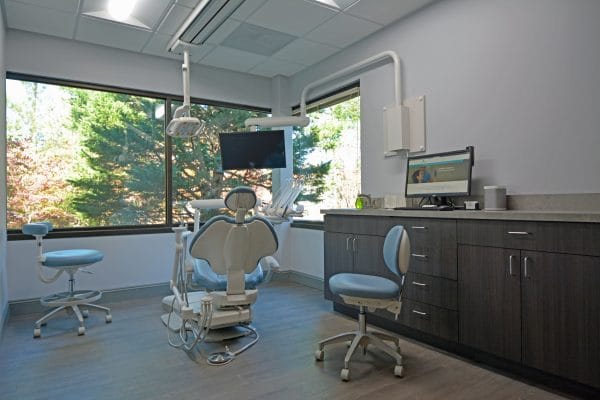What is the difference between dental bonding and veneers?
Today there are many treatment options available to fix any cosmetic issues that you have with your smile. Whether you are unhappy with a chipped or cracked tooth or discoloration of your teeth, there are options available to you that are both cost-effective and timely. Two of the most popular cosmetic treatment options are chapel hill dental bonding and porcelain veneers. Both treatment options produce similar results and can be used to fix a single tooth or many teeth. Below is more information on dental bonding, veneers, and details on the differences between the two treatments.
Dental Bonding
Dental bonding is a treatment procedure where materials are applied directly to the teeth to fix the aesthetic of the teeth. One bonding approach, direct composite bonding, uses a tooth-colored composite material to fix chips, cracks, or discoloration of the teeth. Dental bonding is minimally invasive, requires little preparation, and is a cost-effective cosmetic fix. Often a dentist will decide to apply bonding material in conjunction with other treatments to improve the overall treatment results.
Pros and Cons of Dental Bonding
Dental bonding is a low-pain and low-risk option to fix cosmetic issues with the teeth. Another benefit of the procedure is that it can usually be completed in one dental visit. Lastly, dental bonding can be a customized experience, where the dentist uses their expertise to create a solution that is just right for YOU. Unfortunately, the composite used in dental bonding is not as durable as natural teeth and can be damaged or stained more easily. On average, it is estimated that composite bonding will last between 3-10 years.
Veneers
Veneers are artificial caps that are designed to be attached to the front of teeth to fix their appearance and restore their function. Veneers can be made from various materials, but porcelain is the most popular due to their durability and natural looking appearance.
Pros and Cons of Dental Veneers
Thanks to their design, veneers are a more permanent solution than dental bonding. On average, veneers can be expected to last up to 20 years. Unfortunately, veneers require several appointments to prepare the teeth, complete a thorough oral exam, and take measurements prior to installation. Additionally, time in advance is needed for veneers to be ordered and custom-made in a dental laboratory. Lastly, veneers are a larger investment due to their customized design.
If you have been wanting to improve the look of your smile, there are many cosmetic treatment options available to you. If you are deciding between cosmetic bonding or veneers there are many factors for you to consider. Veneers are a large investment, but this investment will result in a more permanent and durable solution. If you are trying to find a quick and low-cost fix to repair one tooth, dental bonding may be a good choice for you. The best place to start when deciding between dental bonding and veneers is to have a discussion with your dentist and discuss what is the best option for you.
More on Dental Bonding : How much does Dental Bonding Cost?





High-Quality Dental Care
At Cornerstone Family Dentistry in Chapel Hill, all our services are performed with the patient in mind. We want you to feel comfortable in the dental chair, confident in our work, and most importantly, we want you to fall in love with your smile again. If you would like to schedule an appointment or if you have any questions about cosmetic procedures that we offer, please contact us at (919) 595-1010.
